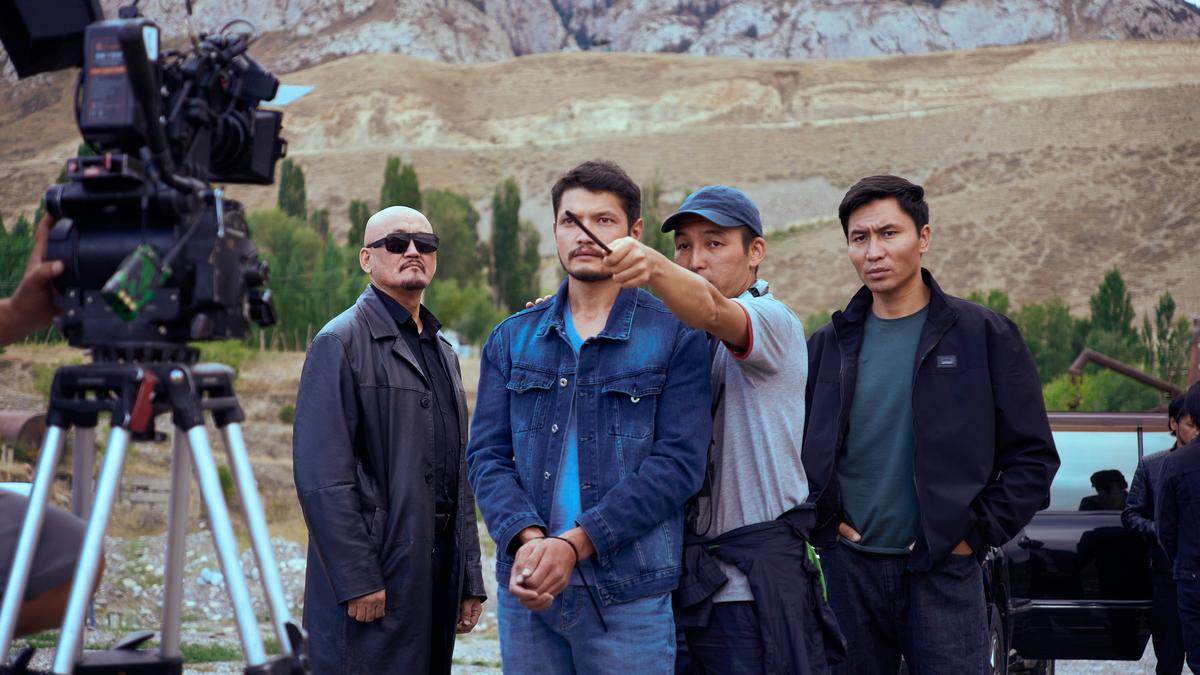
Kyrgyz filmmaker Dastan Zhapar on his first independent work Deal at the Border
The Hindu
Kyrgyz filmmaker Dastan Zhapar’s first independent work, Deal at the Border, was screened at the recent Bangalore International Film Festival. He talks about his work and process...
Shankar M K
Kyrgyz filmmaker Dastan Zhapar’s work is a profound meditation on his society’s shifting relationship with the past and the evolving landscape of Kyrgyzstan’s traditions. At the heart of his cinematic exploration is death, through which he examines societal ruptures and continuities, and reimagines a future.
Kyrgyz society, like other societies previously part of the Soviet Union, has had to deal with three traditions — pre-Soviet, Soviet socialist, and contemporary.
Dastan made A Father’s Will in 2016 and Road to Eden in 2020, both in collaboration with fellow filmmaker Bakyt Mukul. A Father’s Will won the Golden Zenith at the 40th Montreal World Film Festival. Deal at the Border, screened at the recent Bangalore International Film Festival, is Zhapar’s first independent work.
While A Father’s Will was about how reviving an old death ritual helped pacify people defrauded by a man now deceased, Road to Eden reflected on the loss of meaning caused by material compulsions of modern life. With Deal at the Border, Dastan turns to even darker realities — modern slavery and human rights issues. Death here becomes a moment of moral reckoning.
As an amorphous repository of attitudes, practices, and relational hierarchies, a tradition never truly dies. In Dastan’s films, two traditions reside within the present — struggling for attention and validation. The resonances of this exploration are impossible to miss in India, bogged down by a similar contest between putative traditions.
In an exclusive, Dastan shares his thoughts on the many issues of idea, ideology and creative expression. Excerpts:

 Run 3 Space | Play Space Running Game
Run 3 Space | Play Space Running Game Traffic Jam 3D | Online Racing Game
Traffic Jam 3D | Online Racing Game Duck Hunt | Play Old Classic Game
Duck Hunt | Play Old Classic Game











